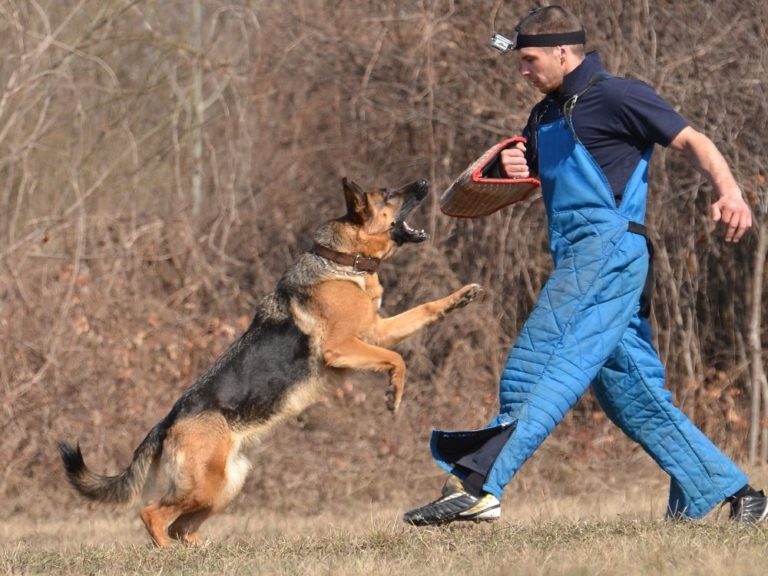Having a well trained guard dog gives you the confidence of knowing that no one can threaten you, your family or your property when your guard dog is around. Have you ever wondered, however, what it takes to properly train a guard dog?
The key to a well-trained guard dog is obedience training. A guard dog should respond to and obey all your commands. In addition, you should also socialize your dog, and avoid teaching your guard dog to bite. However, there’s a lot more to training a good guard dog. Here are the dos and don’ts of guard dog training.
9. Do Train Your Dog To Follow Obedience Commands
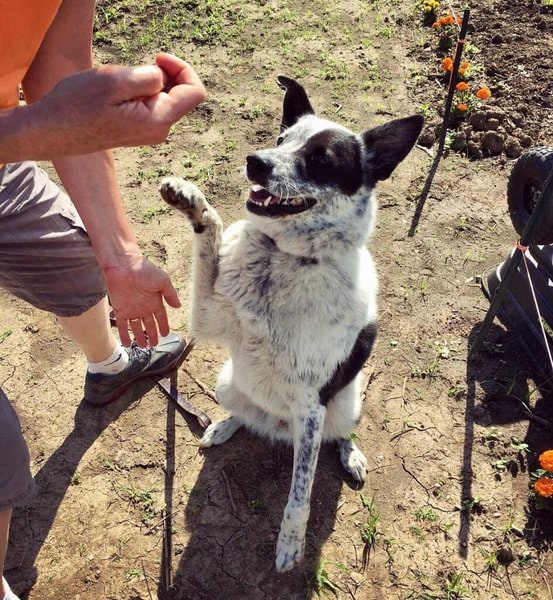
A good guard dog should obey your command in every situation. For instance, even if your dog is barking at a stranger and showing signs of aggression, if you tell them to “stop” or “sit”, they should do it immediately.
To get to this level, you’ll need to devote a lot of time on obedience training. Your dog should respond to your command even when they’re not on leash.
8. Don’t Train Your Dog To Attack
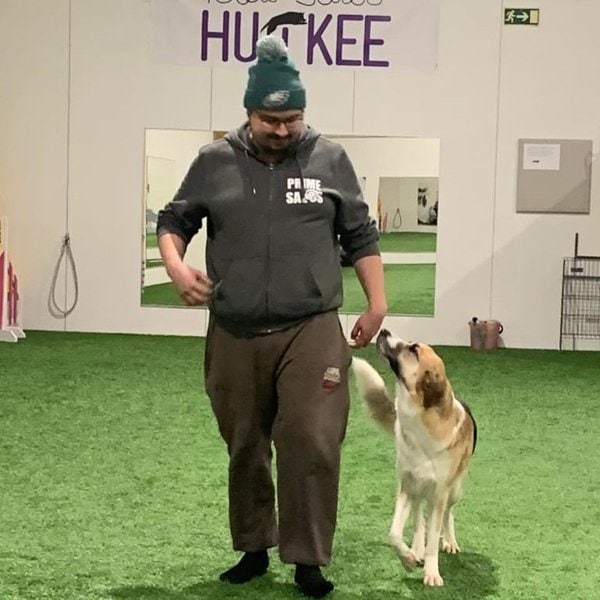
Unless you’re in the police force, you’ll never need your dog to attack and bite someone, so don’t teach your dog to attack people. Actually, training a dog to attack is illegal in some states. You should also discourage your dog from chasing after people once they’re outside your property.
Remember, if your dog attacks and bites someone, you’ll be held responsible for the attack and any resulting injuries.
7. Do Teach Your Dog To Bark To Announce Strangers

One of the key jobs of a guard dog is to alert you when strangers approach your house or property. Therefore, you need to teach your guard dog to bark when unfamiliar people approach.
The best way to teach your guard dog this is to offer treats and praise whenever your dog barks at unknown people within your property. However, don’t encourage this behavior when you’re out in public.
6. Don’t Use Combined Words And Negatives

When training your dog, always use single-word commands. For instance, say “sit”, “bark”, or “stop”. Don’t use words like “bark now” or “I want you to bark.” Using combined word commands will confuse your canine.
In the same vein, avoid negative commands like “don’t attack”. Your dog could respond to the last part of the command, which will result in the dog doing the opposite of what you want.
5. Do Teach Your Dog Of Your Property’s Boundaries
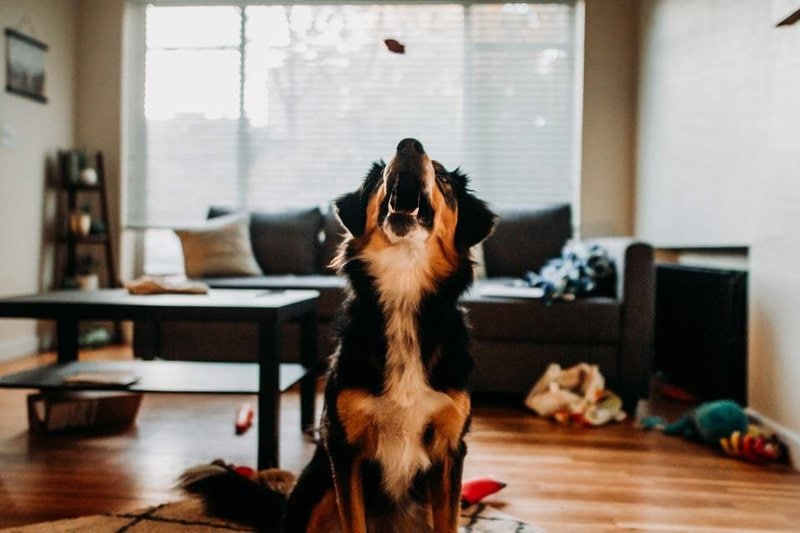
A good guard dog will alert you when someone tries to enter your property, but will not bother with people outside your property. For this to happen, you need to teach your dog to recognize the extent of your property.
The best way to do this is to frequently walk your dog around your property’s perimeter. This way, the dog will learn the territory they are in charge of.
4. Don’t Be Inconsistent
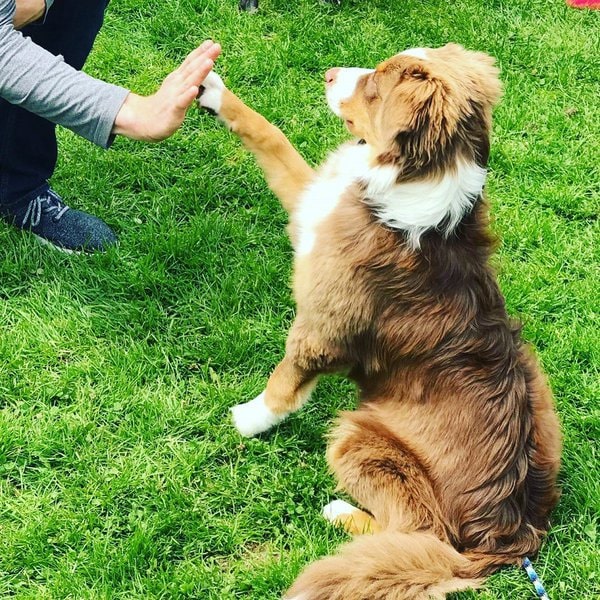
When training your guard dog, you need to be consistent with your commands, and the action you want your dog to take. For instance, if you use the command “speak” to tell your dog to bark, use this command every single time.
Using different commands for the same action, or using the same command for more than one action will leave your dog confused, which will make them less likely to do what you want.
3. Do Socialize Your Dog
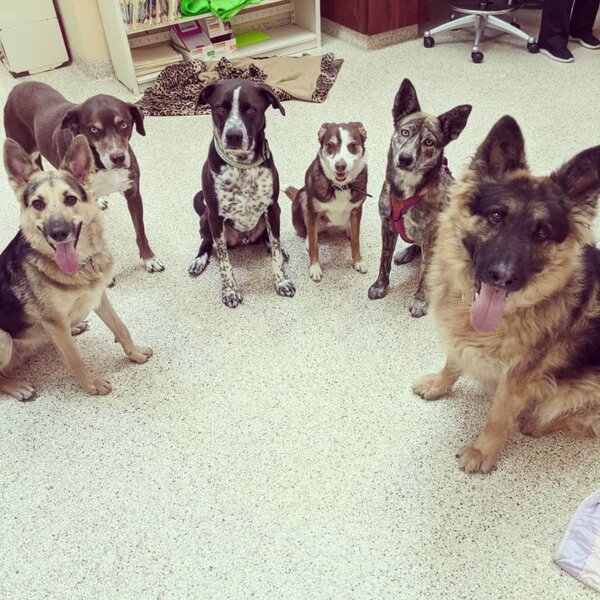
A good dog remains confident and unfazed even in new environments and situations. They don’t react to new situations with fear. The key to achieving this level of confidence is socialization.
You should start socializing your dog from a very young age, preferably when they are between 3 weeks to 12 weeks old. A guard dog that has been socialized from this age will be comfortable and relaxed in most situations.
2. Don’t Train Fearful Or Out Of Control Dogs
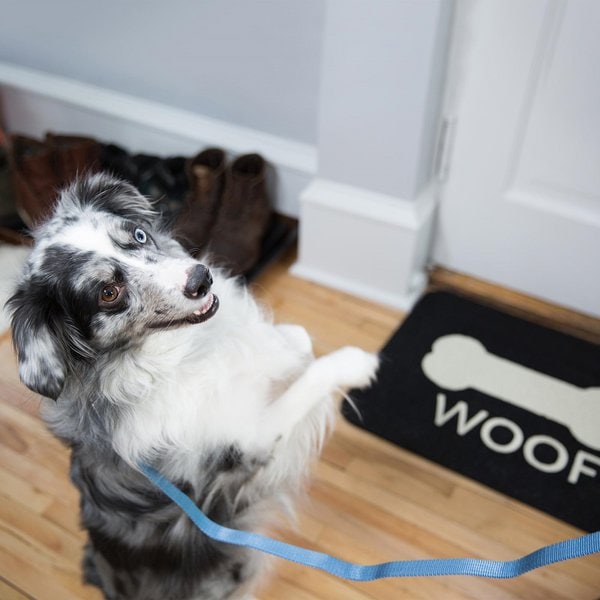
One of the hallmarks of a great guard dog is a high level of self-control in different situations. This can only be achieved if your dog has a high level of confidence. Fearful dogs tend to react in unpredictable ways in unfamiliar situations, so they don’t make great guard dogs.
Therefore, if you want an excellent guard dog, avoid training fearful dogs or dogs with low confidence.
1. Do Choose The Right Dog Breed
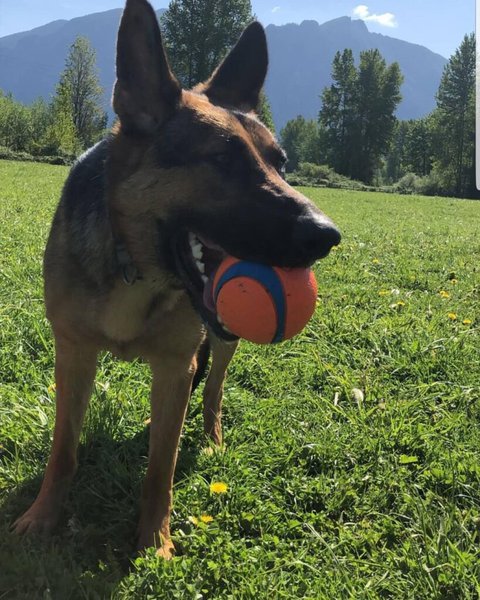
While most dogs can be trained to be guard dogs, there are some breeds that perform exceptionally well as guard dogs. If you want a highly effective guard dog, you should go for these breeds.
Some dog breeds that make exceptional guard dogs include German Shepherds, Rottweilers, Doberman Pinschers, Great Danes, Bullmastiffs, and Giant Schnauzers. Some smaller breeds like pugs and chow chows can also be trained to be excellent guard dogs.
Related Questions
Do Guard Dogs Sleep At Night? Dogs need more sleep than we do, and therefore, it is normal for guard dogs to sleep at night. However, most of the time, dogs don’t get into deep sleep like we do, which means that, even though your guard dog is asleep, they’ll still be alert and will quickly wake up if someone tries to sneak into your property
Why Does My Dog Guard Me When I Poop? Pooping is a vulnerable moment for dogs, and they assume the same applies to you. Therefore, when you go to poop, your dog guards you to make sure you’re safe in this vulnerable moment. This shows they consider you to be part of the pack and are just watching out for you.
Which Is The Best Guard Dog? Bullmastiffs make the best guard dogs. These dogs are courageous, loyal, highly intelligent, and have inborn protection instincts. In addition, their huge physical size and brute strength makes them capable of tackling even the strongest aggressors that can be threatening you, your family or your property.

